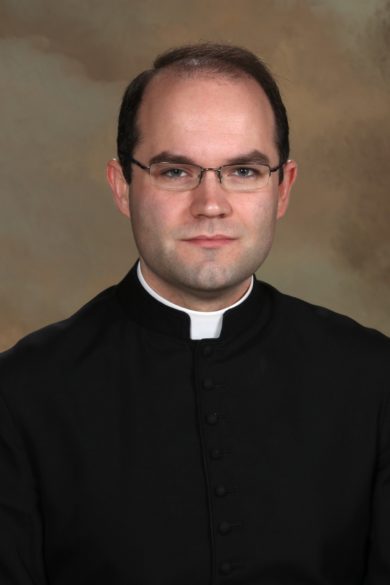SPIRIT AND TRUTH
By Father Aaron Williams
The eyes of the world lately have been fixed on the conflict between Russia and Ukraine. But, one element that isn’t being reported well is the religious differences that exist particularly between Russian and Ukrainian Christians. The majority of Russian Christians (72%) are members of the Russian Orthodox Church. The remainder of Christians in Russia are, for the majority, members of a protestant community. Very few Russians assert they are members of the Catholic Church, and even fewer profess to be Roman Catholic.
Without attempting to explain centuries-old conflicts between Catholics and Orthodox Christians, suffice it to say that the major source of division stems from our understanding of the Pope of Rome as having authority, given to Christ the Lord to St. Peter, as supreme head of the church. But, apart from our political differences, the liturgy of the Orthodox Christians (not simply Russian Orthodox) is aesthetically very different from our celebrations of the Mass.
The liturgy celebrated in Orthodox churches is usually one of two liturgies which find their source in St. Basil the Great and St. John Chrysostom. These “Divine Liturgies” (their term for the “Mass”) are theologically the same celebrations we experience in our churches, with a valid Eucharist and all valid sacraments. Catholic and Orthodox Christians believe the same thing about the Mass, even though we are separated. This is why Orthodox Christians who request sacraments from a Catholic priest would freely be given them, though the same cannot be said of Catholic who may request sacraments from an Orthodox priest.

Now, what most Catholics do not know is that this eastern form of the liturgy also exists within the Catholic Church. There are Catholics throughout the world, and even in our own diocese, who are just as Catholic as you and me and yet are not Roman Catholic, meaning they do not celebrate the Roman form of the Holy Mass or the Sacraments and other rites. The largest of these ‘other’ Catholic Churches is the Ukrainian-Greek Catholic Church, which like the Russian Orthodox, also celebrate the Divine Liturgies of St. Basil and St. John Chrysostom.
Ukrainian-Greek Catholics, as well as the members of the other non-Roman Catholic Churches differ from Orthodox Christians because, like us, they also accept the authority of the Pope and believe all that is professed in the Catechism of the Catholic Church. So, we speak of these Catholics as being “in full communion.” The highest authority figure of the Ukrainian-Greek Catholic Church is the Major Archbishop of Kyiv-Galicia, Sviatoslav Shevchuk — who, like any archbishop, is answerable to Pope Francis.
So, with this as a background, Catholics should be aware that one major point of concern for us in the conflict between Russia and Ukraine is that culturally the impact of this war could be devastating to our fellow Catholics. Russian Orthodox Christians have historically been very unreceptive to their Catholic counterparts in Ukraine. In fact, the Russian Orthodox Patriarch Krill of Moscow has on several occasions publicly denounced Ukrainian-Greek Catholics as “heretics” who “abuse the liturgy with Roman customs.”
During my studies at the Liturgical Institute, I was graced with the opportunity to concelebrate the Divine Liturgy of St. John Chrysostom every Sunday for several weeks at a nearby Byzantine (Greek) Catholic Church. It was a great opportunity for me to learn about and participate in an ancient Catholic rite, though differing from my own. The experience also helped me better understand the now-famous phrase of Pope St. John Paul II that, in the eastern and western liturgies, the church breathes with “two lungs.”
Though our diocese does not have an eastern Catholic Church, there are several eastern Catholics among us who are members of the Byzantine (Greek) Church, the Melkite (Lebanese) Church, or the Syro-Malabar and Syro-Malankara (Indian) Churches. Mississippi does have several orthodox churches and communities, the largest of which are the Greek Orthodox Churches in Jackson. The closest Eastern Catholic Church to our diocese is St. Nicholas Byzantine Mission in New Orleans.
As the situation in Ukraine worsens, and our Holy Father continues to call us to prayer, we as Roman Catholics should remember especially our eastern-Catholic brothers and sisters who have historically suffered much more prejudice against them than Roman Catholics experience, and who still suffer today.
(Father Aaron Williams is parochial vicar at St. Patrick and St. Joseph Meridian.)
